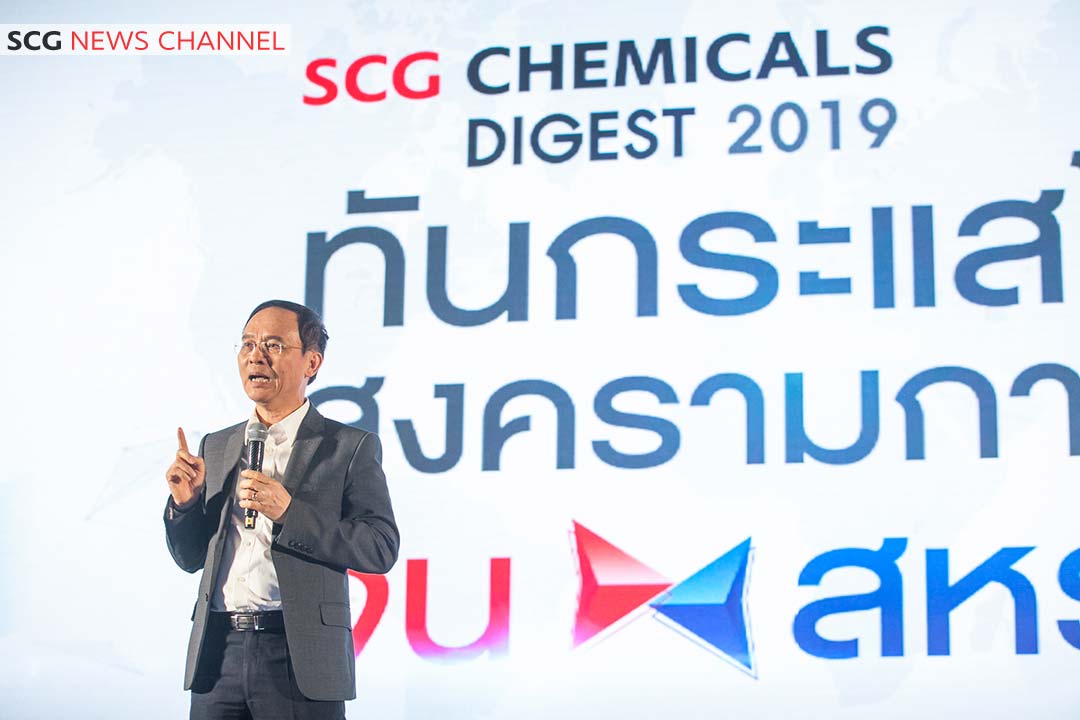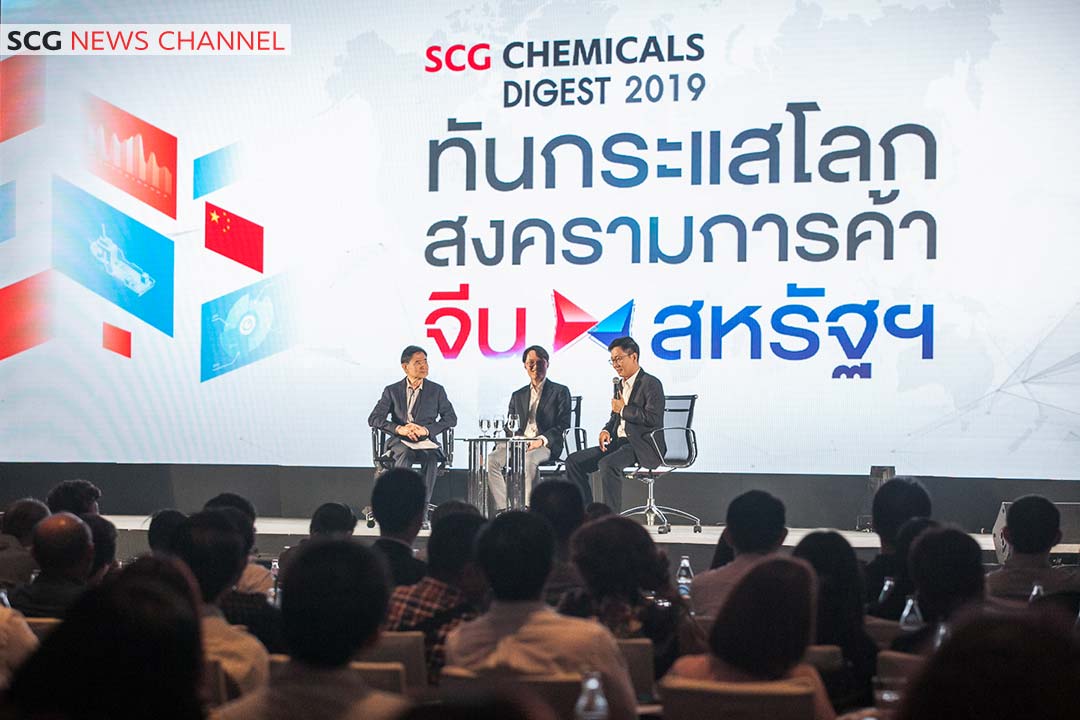The Chemicals Business, SCG, hosted SCG Chemicals Digest 2019, entitled “Keeping up with the World: China-U.S. Trade War,” to present an analysis of the ongoing China-U.S. trade war as well as upcoming economic impact, fluctuation, and challenges to over 400 attending plastic business owners to enhance their preparedness. The seminar featured a panel of respected authorities on social sciences, cultures, trade, and the development of the China-U.S. trade war, including Professor Dr. Thanet Aphornsuvan, a Distinguished Fellow at Thammasat University and an expert on the U.S. History, and Dr. Arm Tungnirun, a law professor at the Faculty of Law, Chulalongkorn University, and an expert of China.
Tanawong Areeratchakul, President of the Chemicals Business, SCG, stated that the China-U.S. trade war has affected global demand, and experts are concerned that economic recession will exacerbate. The Chemicals Business has braced itself for the reverberations by enhancing the efficiency of its digital technology used for forecasting oil prices and placing orders while also managing costs and developing high value added products and services.

Sakchai Patiparnpreechavud, Vice President – Polyolefins and Vinyl Business of the Chemicals Business, SCG, said the oil price volatility brought on by the China-U.S. trade war has triggered fluctuation in both global petrochemical prices and exchange rates. In addition, another factor that impacts the plastic industry is the plastic waste crisis resulting from poor management that has impacted the environment and killed marine life. In response, the Chemicals Business has been working with government agencies, private businesses, and civil society organizations to educate the public, drive the make-use-reuse model of the circular economy, and ensure effective waste management.
Professor Dr. Thanet Aphornsuvan, a Distinguished Fellow at Thammasat University, said the key factor that triggered the trade war between China and the U.S. was the “America First” policy that President Donald Trump had pursued to appeal to conservative and right-wing Americans, who had been affected by the globalized economy and, in particular, China’s rapid economic and industrial development, which threatened to outpace the U.S. The resolution to the economic and financial conflict now seems to be nowhere in sight despite talks, as Trump has continued to politicize what is actually not yet a war; the outcome of future negotiations between the two sides will decide Trump’s re-election. While the conflict with China has given Trump the opportunity to show off the negotiation skills he is known for, it is the officials in different ministries who have borne the brunt of the situation.
Dr. Arm Tungnirun, a law professor at the Faculty of Law, Chulalongkorn University, described China’s strategies for coping with the U.S. in the trade war, which could be summarized as 4Rs 1) Resist – buying time and promoting patriotism; 2) Retaliate – enforcing embargoes on agricultural products and weakening the yuan; 3) Reform – reforming the domestic economy by reforming state enterprises and opening up its economic sector; and 4) Reorganize – rearranging its economic chain, refocusing on domestic consumer markets and the markets of the New Silk Road countries, and shifting some production overseas.

“SCG Chemicals Digest” is an annual seminar for the customers of the Chemicals Business, SCG. It is hosted to broaden the horizons of the attendees regarding marketing, economy, and the landscape of the petrochemical industry and enhance their management capability in order to ensure their competitiveness and sustainable development.
For more details about Chemicals Business, SCG, please visit http://www.scgchemicals.com/allaroundplastics or check out SCG’s latest news at http://www.scgnewschannel.com / Facebook: scgnewschannel / Twitter: @scgnewschannel or Line@: @scgnewschannel.